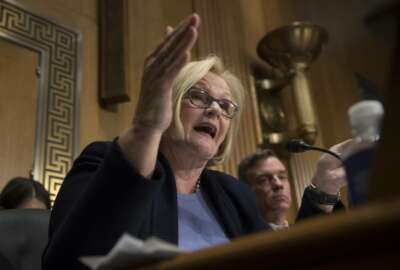This column was originally published on Jeff Neal’s blog, ChiefHRO.com, and was republished here with permission from the author.
The reports that a pay freeze for fiscal 2019 may be in the works are disappointing. When the Obama administration and Congress froze federal pay for three years, the effect on the federal workforce was significant. Federal workers lost money, morale was harmed and agencies had to recruit for critical talent while telling applicants their pay would be frozen indefinitely. Agency scores in the Partnership for Public Service Best Places to Work in the Federal Government rankings dropped during the freeze and did not recover until it was over. Another governmentwide pay freeze would be likely to have similar results.
There is no question that federal pay rules are in need of updating. The general schedule is a relic of the past, designed for a mostly clerical workforce of the 1950s rather than the highly skilled knowledge workforce of today. Although one side will tell you federal workers are underpaid by 25 percent or more, and another side will tell you feds are overpaid by 40 percent or more, neither of those extremes is right. The truth is that some federal workers are overpaid, some are underpaid and others are paid about the right amount. So, we should fix the problems with federal pay. It is a complicated issue that will require data, analysis and a robust public policy debate. Voices from the full range of the political spectrum should be heard, and a 21st century pay process put in place.
In the interim, freezing pay is not the best way to proceed. Some agencies are already having difficulty hiring talent in high demand skills, such as cybersecurity. Those jobs need to be filled, and freezing pay is a strong message to the labor market that the federal government is not where you want to be. Cybersecurity is highly visible, but it is not the only occupation where a freeze could do damage. The Homeland Security Department (DHS) plans to add thousands to its border security and immigration workforce. Filling those jobs is difficult enough today. Imagine going to the labor market with the message that not only will you get to work long hours, but your pay will be frozen. It is a tough sell. Law enforcement is not the only part of DHS where pay may be a problem. Some Federal Emergency Management Agency (FEMA) employees are running into the caps on premium pay due to the extraordinary number of hours they have worked on hurricane and wildfire relief and recovery. FEMA employees do not stop working overtime just because they hit the cap. They are dedicated employees who will carry out their mission no matter what. Do we really want to freeze their pay?
And what about the Department of Defense? There are more than 730,000 DoD civilians. They perform vital work in support of our troops. Without them, the Army, Navy, Air Force and Marines cannot carry out their missions. I worked for DOD for 26 years and never saw a more dedicated and hard working group of people. They do whatever needs to be done to make certain our troops get the support they need. They provide food, fuel, spare parts and medical supplies. They repair ships and aircraft. They teach the children of our troops. They handle military pay. Do we really want to freeze their pay?
Fix federal pay? Absolutely. Freeze the pay of federal workers while we do it? No. That presents too great a risk to the ability of the government to recruit and retain the workforce it needs to serve the American people.
Jeff Neal is a senior vice president for ICF and founder of the blog, ChiefHRO.com. Before coming to ICF, Neal was the chief human capital officer at the Homeland Security Department and the chief human resources officer at the Defense Logistics Agency.
Copyright
© 2024 Federal News Network. All rights reserved. This website is not intended for users located within the European Economic Area.
